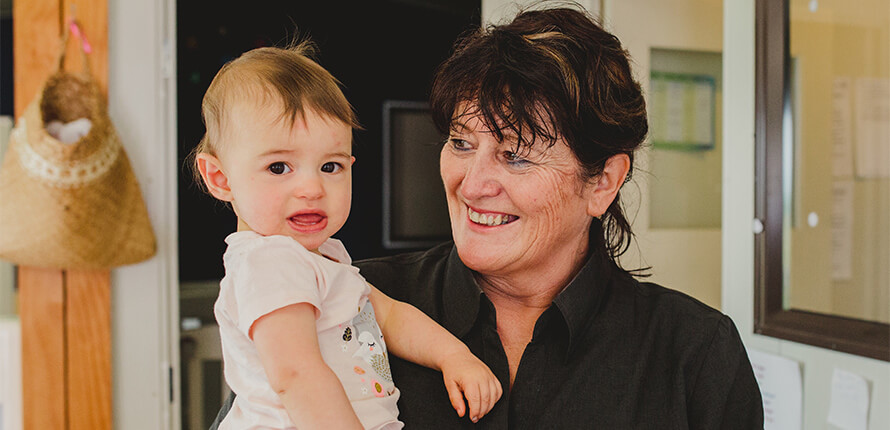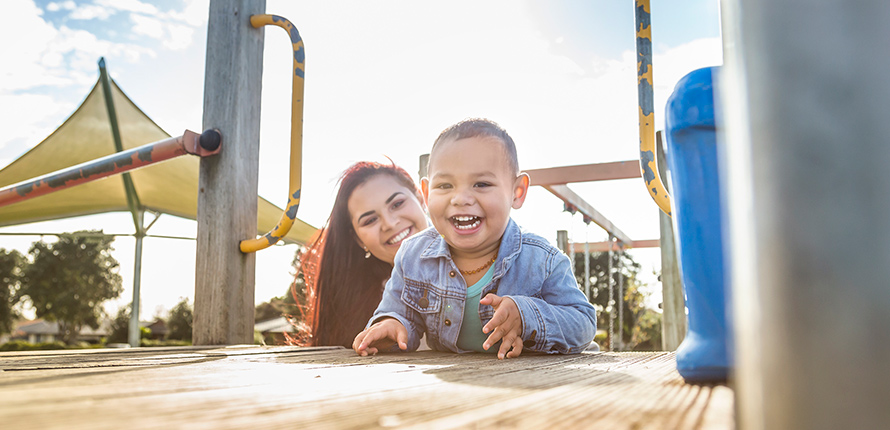The importance of security and attachment
Security and attachment
Whether you choose to use a home based educator or send your child to an early learning centre, of the key things to notice is the way that adult responds to children.
This partnership that you build up with your child's key person will be important to your child's security and attachment.

Key person system
When working with infants, one person, in particular, the 'key person' should be appointed to look after your child as they settle in and beyond. the key person system is especially important for babies. A person who is sensitive to your child's needs and responds with care and gentleness is vital to their wellbeing and to maintaining low stress levels. Attaching to one person is important so that your baby feels safe and secure.
The key person is the person that you approach to give information about your child and you should build a working relationship with to ensure your child is happy. This does not, however, exclude your child from building relationships with others in the environment, as the key person may not always be around.
Transitions to early learning services
The way the transition from home to early learning and care setting and subsequent transitions such as preparing for school are supported is very important.
When your baby is settling into a service, the new people to get to know and a new environment, the key person is vital to how this is managed effectively. Children who do not feel that they have someone specific to go to may not settle in wall or may withdraw because they don't know how to cope in the setting.
Children who are helped by sensitive adults to manage transitions will learn how to cope with change to view it as natural, rather than traumatic or something they should be afraid of. They are also better able to learn when adults, both parents and staff, help them to become familiar with everything.

Your baby's care
The early years of a child's life are instrumental in shaping their emotional and intellectual development. Both genetic and environmental factors play vital roles in this development and subsequently in a child's life chances.
The part of the brain that deals with memories and coincides with the child's growing awareness of and attachment to caregivers develops between six and eight months. The experience young babies have of forming relationships at this time, therefore, influences all future relationships. For infants in childcare, the attachment to a key person is vial to their social and emotional development.
As well as providing play and plenty of talk to help acquire language, a carers response to the routine care of babies is important to their development. Nappy changes and feeding should not be a conveyor belt system as these are special moments for babies, which help them to gain trust and feel secure.
Think about....
- Will the same person look after your child every day?
- What would happen if this person is sick or on holiday?
- How are babies held? Is eye contact made?
- Look at how babies are fed and put to sleep. Are these tasks done by their key person?
Working with children is a tiring job, but in a good quality environment you will see adults (teachers and educators) who enjoy being with children. Talk to people already using the service to get some feedback.

